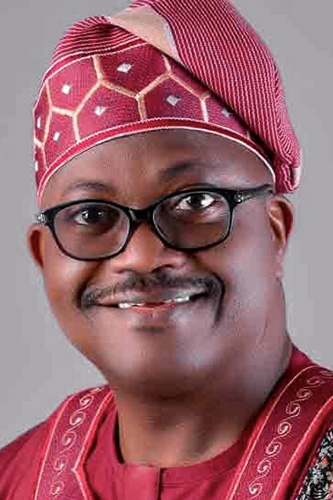


|
||
|
||
Co-authored by Dr. Jimson Olufuye, Principal Consultant, Kontemporary Konsulting Ltd & Chair, Advisory Council, AfICTA and Ms. Tigist Awoke Wubneh, CEO, Awoke Technologies Inc., were AfICTA delegates to the Summit of the Future, New York, September 2024.
The Summit of the Future (SotF) was held at the United Nations Headquarters in New York on September 22-23, 2024. World leaders, in the presence of stakeholders from the private sector, civil society, academic/technical communities, and youths, endorsed a landmark Pact for the Future of mankind.
The Pact for the Future (P4F) (A/RES/79/1) was a significant, consensus-driven but non-binding document agreed upon by world leaders specifically on September 22, 2024. It aims to move humanity towards closer cooperation on various issues to foster peace, human rights, prosperity, security, gender equality, environmental sustainability, and hope for future generations. Unlike the World Summit on Information Society (WSIS) of 2003 and 2005, the preparations for the Summit of the Future were inclusive, building on the multi-stakeholder gains from WSIS that improved global prosperity through strengthened roles of various stakeholders such as the private sector, civil society, and the technical and academic communities.
We commend the proactive initiatives of the Secretary-General of the United Nations, Mr. António Guterres, and his team for evolving the new paradigm of digital cooperation after the deadlock on the WSIS Tunis Agenda 2005 track on Enhanced Cooperation regarding international public policy matters pertaining to the Internet. As the Commission for Science and Technology for Development Working Group on Enhanced Cooperation could not produce a consensus report after four years of debate in Geneva (2014-2018), the Secretary-General convened a high-level panel on Digital Cooperation in July 2018. Chaired by Melinda Gates and Jack Ma, the panel included Vint Cerf and 17 others, and they produced the Age of Digital Interdependence report in June 2019, with recommendations to improve digital cooperation.
Following this, the Secretary-General presented his Roadmap to Digital Cooperation on June 11, 2020, based on input from over 100 countries with multi-stakeholder participation. Responding to the UN General Assembly’s UN75 declaration in September 2020, the Secretary-General released the Our Common Agenda report in September 2021, proposing the Summit of the Future for September 2024 during the 79th General Assembly. Two co-facilitators were appointed to gather input from all stakeholders, with the UN Economic Commission for Africa (UNECA) consulting all stakeholders in Africa. The African private sector’s views, represented by the Africa ICT Alliance (AfICTA), were considered, especially concerning the Global Digital Compact (GDC).
The Summit of the Future agreement consists of three documents: the Pact for the Future (the main document), the Global Digital Compact, and the Declaration on Future Generations (annexes). The emphasis on multilateralism to achieve the Pact of the Future agreement reflects the final resolution of the WSIS Tunis Agenda, which tracks two resolutions on “Enhanced Cooperation” for governments to address international public policy issues concerning the Internet. This was particularly significant after the United States devolved its oversight stewardship of the Internet Corporation for Assigned Names and Numbers (ICANN) and Internet Assigned Number Authority (IANA) functions to the global community on October 1, 2016.
The Global Digital Compact focuses on multi-stakeholder engagement in using digital technologies to accelerate the achievement of the Sustainable Development Goals 2030. It aims to bridge digital divides and ensure digital technologies, such as Artificial Intelligence, serve the common good. Notably, two Action Days (September 20-21) were dedicated to enhancing youth participation before the Summit.
The Declaration on Future Generations commits to including youths in managing global affairs moving forward. This is a commendable initiative, with some countries (e.g., Nigeria) already convening special summits for youth engagement.
In summary, the Pact of the Future document encompasses five themes: Sustainable Development and Financing for Development, International Peace and Security, Science, Technology and Innovation, Digital Cooperation, Youth and Future Generations, and Transforming Global Governance. It includes 56 action points. The Annex I document, the Global Digital Compact, sets the goal of “an inclusive, open, sustainable, fair, safe, and secure digital future for all.” It includes five objectives, 13 principles, and 66 commitments for governments, with active participation from all stakeholders, including the private sector, civil society, technical, and academic communities. The Annex II document, the Declaration on the Future Generations, contains 10 guiding principles, 13 commitments, and 9 action points.
While the Pact, commitments, and declarations are commendable, are they realizable? Given how many developing and least developed countries (DLDGs) have handled the Sustainable Development Goals and the Summit consultations, we are skeptical that the SDGs will be met, and resources earmarked for their realization may be misappropriated. Our skepticism is based on the following reasons: 1) The agreement is non-binding, so there may be no compulsion to take it seriously. 2) Many DLDGs do not have a culture of collaborating with all non-state actors, including the private sector, civil society, technical, and academic communities, thus failing to utilize all their capabilities for accelerated development. In some regions, the potential of women and girls remains untapped. 3) The agreement does not recommend processes, such as independent audits, that ensure probity and accountability in managing financial resources.
Finally, the Pact for the Future is a pact of hope, and we hope it will not be deflected. While governments have done their part, the call is for other stakeholders to engage creatively to ensure the commitments and actions proclaimed become milestones for celebration in the foreseeable future.
Sponsored byIPv4.Global

Sponsored byVerisign

Sponsored byVerisign

Sponsored byDNIB.com

Sponsored byRadix

Sponsored byCSC

Sponsored byWhoisXML API
